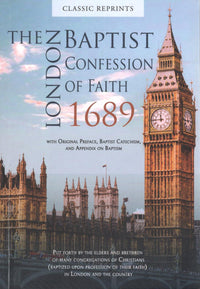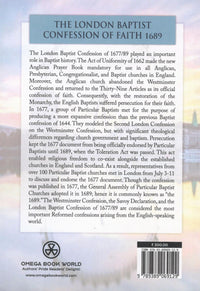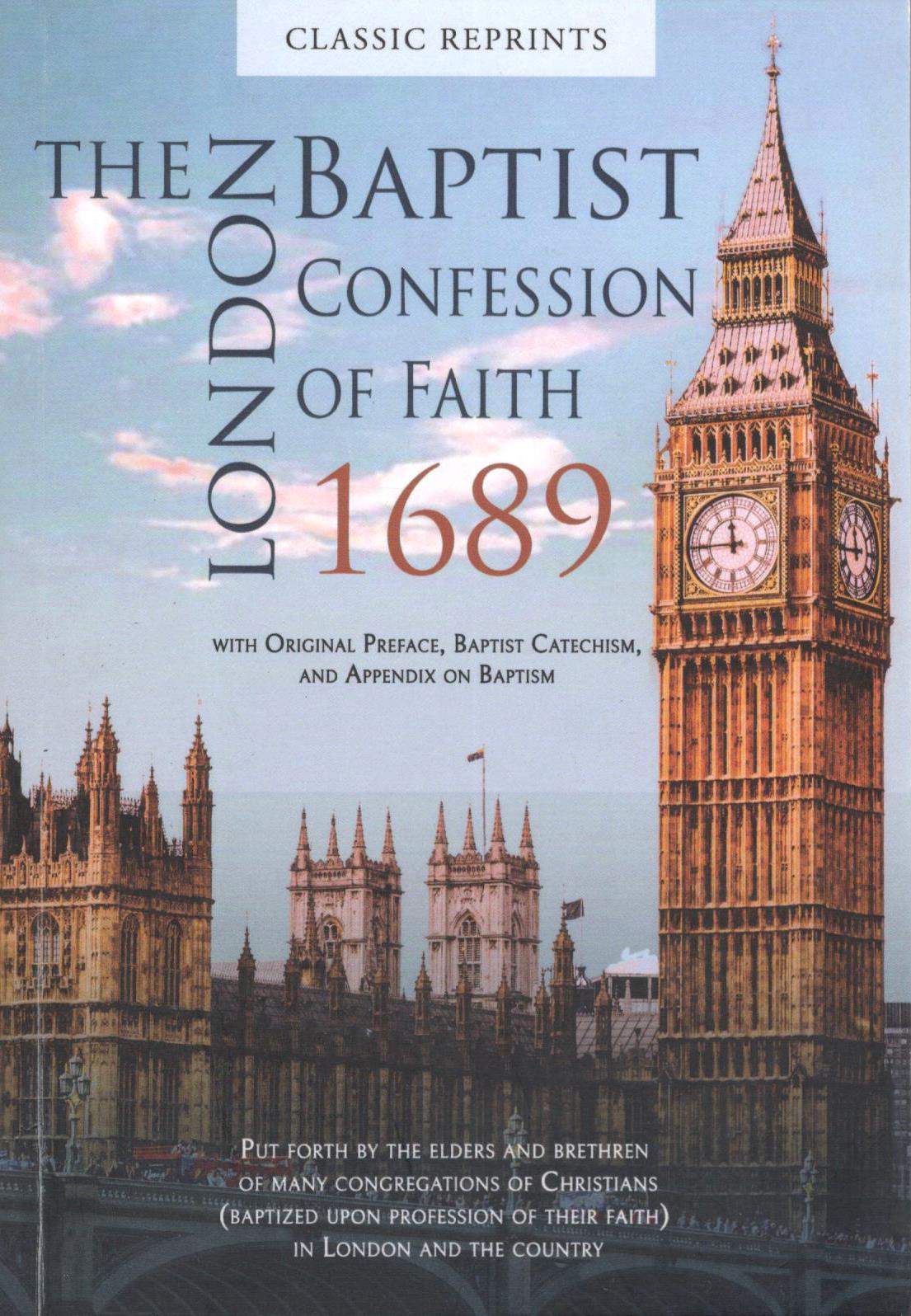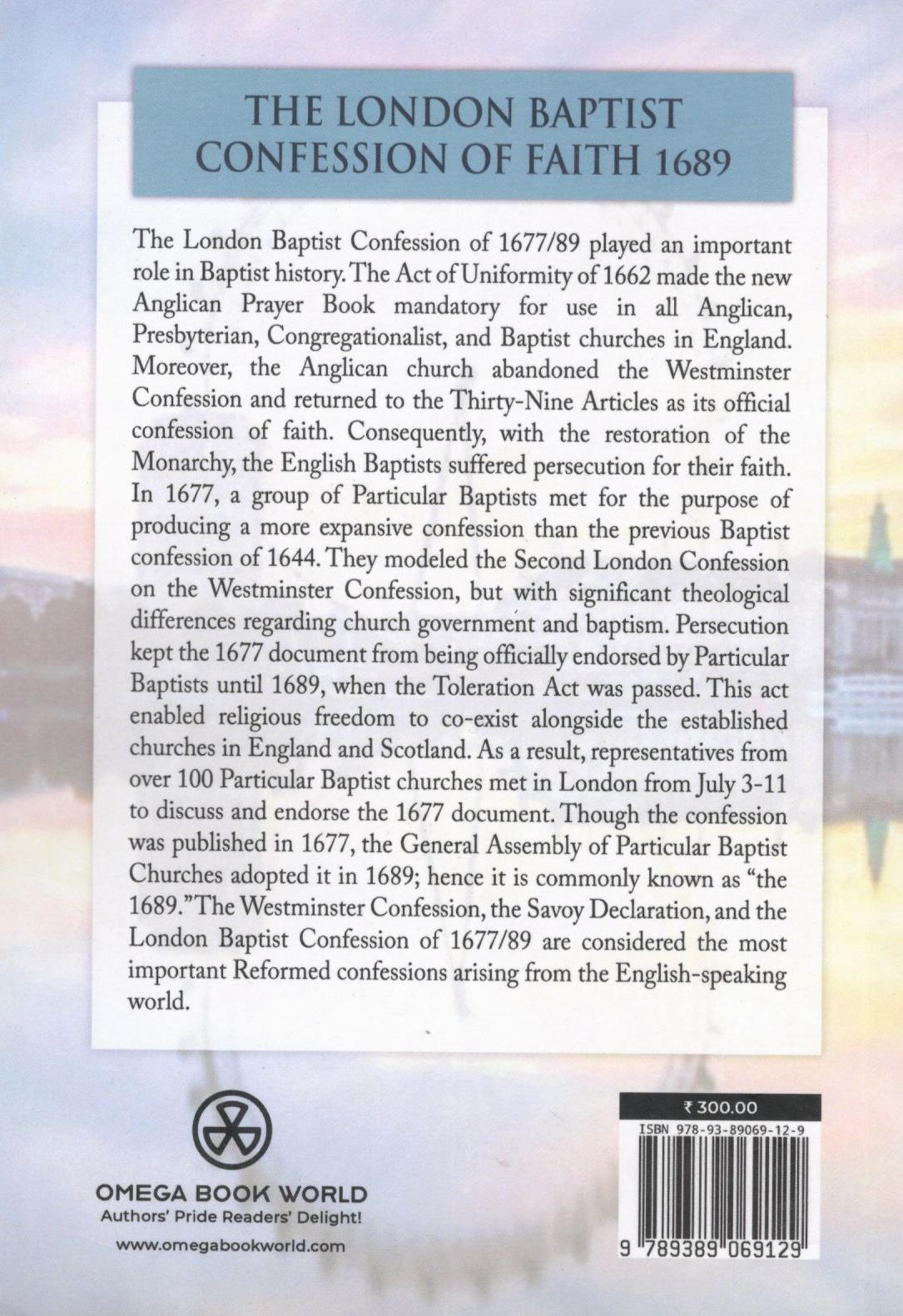The London Baptist Confession of Faith of 1689
- Regular
- Rs. 300.00
- Sale
- Rs. 300.00
- Regular
- Unit Price
- per
The London Baptist Confession of 1677/89 played an important role in Baptist history. The Act of Uniformity of 1662 made the new Anglican Prayer Book mandatory for use in all Anglican, Presbyterian, Congregationalist, and Baptist churches in England. Moreover, the Anglican church abandoned the Westminster Confession and returned to the Thirty-Nine Articles as its official confession of faith. Consequently, with the restoration of the Monarchy, the English Baptists suffered persecution for their faith. In 1677, a group of Particular Baptists met for the purpose of producing a more expansive confession than the previous Baptist confession of 1644. They modeled the Second London Confession on the Westminster Confession, but with significant theological differences regarding church government and baptism. Persecution kept the 1677 document from being officially endorsed by Particular Baptists until 1689, when the Toleration Act was passed. This act enabled religious freedom to co-exist alongside the established churches in England and Scotland. As a result, representatives from over 100 Particular Baptist churches met in London from July 3-11 to discuss and endorse the 1677 document. Though the confession was published in 1677, the General Assembly of Particular Baptist Churches adopted it in 1689; hence it is commonly known as “the 1689.” The Westminster Confession, the Savoy Declaration, and the London Baptist Confession of 1677/89 are considered the most important Reformed confessions arising from the English-speaking world. This edition has the original preface, the Baptist catechism, and the original appendix on baptism, as well as an appendix on the historical background of the confession
Isbn / Product Code - 9789389069129
Dimensions - 20.5x0.5x14cm
Printed Pages - 121
Format - Paperback
Year Of Publication - 2019
Publisher - Omega Book
Author - Benjamin Keach, Hanserd Knollys & William Collins



















